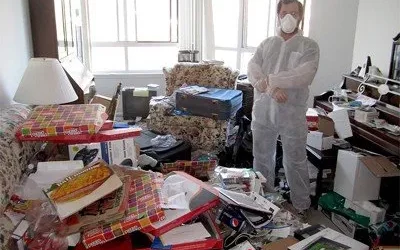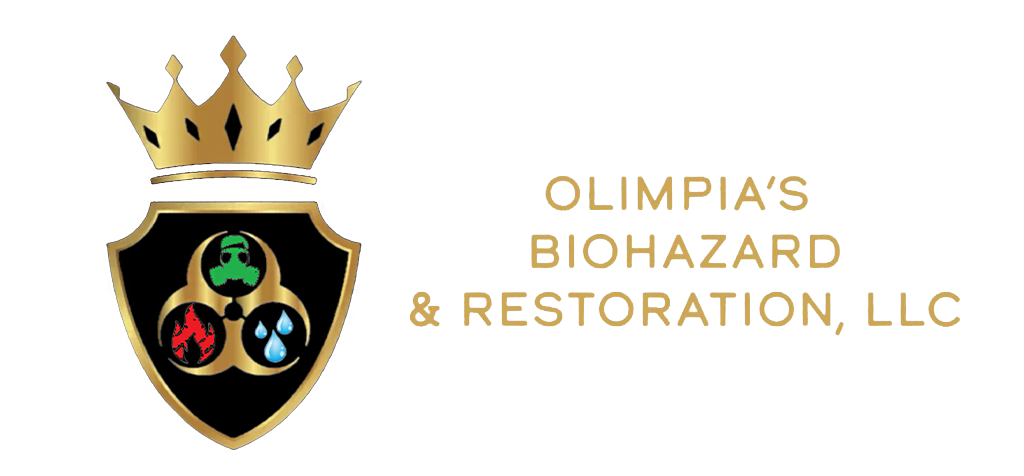In the vibrant city of Portland, Oregon, where community spirit and preparedness are paramount, the intersection of hoarding cleanup and disaster recovery planning presents a unique and complex challenge. Hoarding, characterized by excessive clutter and attachment to possessions, can impede disaster preparedness efforts and pose significant safety risks. This guide delves into the intricate relationship between hoarding tendencies and disaster recovery in Portland. It explores the recognition of hoarding signs, the creation of comprehensive cleanup and recovery plans, ethical considerations, and the vital role of collaboration between professionals and the community. Together, we embark on a journey to build a safer, more resilient, and compassionate Portland.
Addressing Hoarding and Enhancing Disaster Preparedness in Portland
This comprehensive guide by Olimpia’s Biohazard & Restoration LLC navigates the intersection of hoarding cleanup and disaster recovery planning in the unique context of Portland, Oregon. From recognizing hoarding signs to creating resilient and compassionate disaster recovery plans, we explore the intricate web of challenges and solutions that ensure a safer, more prepared, and supportive community for all.


Understanding Hoarding Cleanup Challenges in Portland:
Hoarding presents unique challenges in Portland, where a lush and vibrant environment can exacerbate the consequences of neglect and excessive clutter. This section explores the specific issues that hoarding poses in this city, including increased fire hazards, pest infestations, and the strain on local resources. Understanding these challenges is the first step in developing effective cleanup and recovery strategies.
The Connection Between Hoarding and Disaster Preparedness:
Hoarding tendencies can significantly impact disaster preparedness. This section delves into the link between hoarding behaviors and a decreased ability to respond effectively to emergencies, such as earthquakes or wildfires. It emphasizes the importance of addressing hoarding issues as part of broader disaster recovery planning efforts.
Creating a Comprehensive Hoarding Cleanup and Recovery Plan:
Developing a comprehensive plan for hoarding cleanup and recovery is essential. This section provides guidance on creating a structured and multifaceted approach that includes assessment, intervention, cleanup, and ongoing support for affected individuals. A well-organized plan is key to successful outcomes.
Legal and Ethical Considerations in Hoarding Cleanup:
Hoarding cleanup must adhere to legal and ethical guidelines. This section discusses the legal obligations and ethical responsibilities of cleanup professionals and the importance of respecting the rights and dignity of individuals affected by hoarding. It emphasizes the need for sensitivity and compassion throughout the process. Recognizing signs that hoarding cleanup is needed is a crucial aspect of disaster recovery planning, as addressing excessive clutter and unsafe living conditions in advance can mitigate potential risks and aid in effective disaster response.
Collaborating with Professional Cleanup Services in Portland:
Partnering with professional cleanup services is often essential for hoarding cleanup. This section explores the benefits of working with experts experienced in hoarding situations. It highlights the importance of selecting reputable companies in Portland with a track record of compassionate and effective cleanup.
Hoarding Cleanup Strategies for Safety and Efficiency:
Effectively addressing hoarding involves specific cleanup strategies. This section discusses safety protocols, efficient clutter removal techniques, and the role of biohazard cleanup when necessary. It emphasizes the need to prioritize safety for both cleanup professionals and residents.


Incorporating Mental Health Support in Hoarding Cleanup:
Hoarding is often linked to underlying mental health issues. This section emphasizes the importance of integrating mental health support into the cleanup process. It discusses strategies for connecting affected individuals with appropriate mental health resources in Portland.
Disaster Recovery Planning for Hoarding-Affected Properties:
Disaster recovery planning takes on added complexity when hoarding is involved. This section addresses the specific challenges of restoring hoarding-affected properties after disasters. It discusses strategies for mitigating risks and restoring safety and functionality.
Educating the Portland Community on Hoarding and Preparedness:
Community education plays a crucial role in addressing hoarding and disaster preparedness. This section explores outreach and education initiatives aimed at raising awareness of hoarding-related issues and fostering a more prepared and supportive community.
Sustainable Cleanup Practices: Minimizing Environmental Impact:
Hoarding cleanup often involves the disposal of large quantities of items. This section highlights the importance of incorporating sustainable practices to minimize the environmental impact. It discusses recycling, repurposing, and responsible disposal options available in Portland to reduce waste and promote sustainability.
FAQs:
FAQ 1: How can I recognize signs of hoarding in my Portland community?
Answer: Recognizing hoarding signs includes observing excessive clutter, blocked exits, neglected living conditions, and distress in affected individuals. If you suspect hoarding, contact local agencies or professionals experienced in hoarding intervention.
FAQ 2: Is hoarding considered a mental health issue, and how does it relate to disaster preparedness in Portland?
Answer: Yes, hoarding is often linked to mental health conditions. Hoarding can hinder disaster preparedness by impeding escape routes and complicating emergency response. Addressing hoarding as part of preparedness efforts ensures a safer and more resilient community in Portland.
FAQ 3: What steps should I take to assist a hoarding-affected neighbor or family member in Portland?
Answer: Approach the situation with empathy and understanding. Encourage open dialogue, offer support, and connect them with professional hoarding cleanup and mental health services available in Portland. Avoid judgment and focus on their well-being and safety.
Conclusion:
Hoarding cleanup and disaster recovery planning in Portland represent a multifaceted endeavor that intertwines compassion, safety, and preparedness. Understanding the challenges posed by hoarding, both in daily life and during disasters, is the first step toward creating a more resilient community. It is vital to address the physical, mental, and ethical dimensions of hoarding, emphasizing collaborative efforts that involve professional cleanup services and mental health support. By integrating hoarding awareness into disaster preparedness strategies, Portland can enhance safety and reduce vulnerabilities. Ultimately, the goal is to build a more compassionate, prepared, and supportive environment for all residents, irrespective of their unique challenges.
